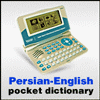
Expensive speech
The limits of free speech
May 12, 2005
iranian.com
In recent times, violent speech has become
a significant issue. It has grown significantly, largely because
of the Internet. Some people use the Internet as a way to spread
their views, thoughts, or hatred. Offending a person in everyday
life is not uncommon, but when it is communicated to the world
via the Internet, it becomes much more reprehensible. This is not
a recent controversy and certainly will not go away anytime soon.
When false accusations are made, free speech can be harmful.
Today,
there are too many people living in the U.S. or Europe who apparently
believe it is their duty to sit behind their computers
or to stand behind their podiums telling those in other countries
what to do. Free speech is provided by the First Amendment in the
U.S., but this speech is not absolute even within the U.S. Free
speech is tolerated, but just as defamation can lead to civil liability,
often in the millions of dollars, speech which produces or is intended
to produce violence and hatred should be monitored and prosecuted.
If profanity and objectionable programming can be banned from basic
television programming, so should other media venues be restricted.
People are free to say what they want, but with the anonymity and
use of Internet, this right is being abused.
Until we come face
to face with complete freedom (press, religion, speech, pursuit
of happiness), we as Iranians will never realize
the tremendous potential we have.
It is precisely because our people
have never experienced true freedom that they are intolerant with
each other. They reject consensus
and look with disdain upon those who disagree with them.
 Sadly,
there are people who simply do not accept reason or logic. One
only needs to look at various Internet sites where it is easy
to hide behind an assumed name. There are situations where one
gets attacked and falsely accused, even threatened, by these anonymous
individuals. If they would reveal their identity, there would be
a basis to communicate. They justify their anonymity by claiming
fear of harm either to themselves or their families. Although they
have learned the identity of others, they refuse to reveal their
own identities and so are able to make unsubstantiated allegations
against others. Sadly,
there are people who simply do not accept reason or logic. One
only needs to look at various Internet sites where it is easy
to hide behind an assumed name. There are situations where one
gets attacked and falsely accused, even threatened, by these anonymous
individuals. If they would reveal their identity, there would be
a basis to communicate. They justify their anonymity by claiming
fear of harm either to themselves or their families. Although they
have learned the identity of others, they refuse to reveal their
own identities and so are able to make unsubstantiated allegations
against others.
Apparently some of these accusers believe that
the organizations in which others are involved receive large sums
of money or political
support from various sources. It is interesting to note how some
people conveniently “misspell” their names or change
their names (even their gender) to attack others. Using a pseudonym
in this way is an act of cowardness.
There are those who appear
to believe words alone are not actionable as forms of assault or
crimes. It might be true that there is no
law to define when violent speech or writing crosses the line from
free expression into criminal advocacy. But certainly there have
been judicial decisions where individuals have been held liable
for false statements.
Free speech is generally protected in the
U.S. by the Constitution. However, the line between permitted free
expression and speech
which loses that protection has proved evasive for courts. But
clearly speech is not protected if it advocates unlawful conduct
or falsely attacks the character of an individual. At the least
such false statements could lead to civil tort liability for defamation
and, in extreme cases, criminal liability could result. To amount
to defamation, the communication must be published or spoken. Ruining
a person’s reputation and opportunities is not part of free
speech.
 What we say about each other defines who we are.
We must not let the broad freedom of speech which is permitted
in the U.S.
mislead
us into language which could cause civil and/or criminal liability
and which at the least undermines our ability to communicate
with and to trust each other. We should seek to support one another
and our organizations which are seeking to protect our rights
and
our identity as Iranians not undermine these organizations or
each other. What we say about each other defines who we are.
We must not let the broad freedom of speech which is permitted
in the U.S.
mislead
us into language which could cause civil and/or criminal liability
and which at the least undermines our ability to communicate
with and to trust each other. We should seek to support one another
and our organizations which are seeking to protect our rights
and
our identity as Iranians not undermine these organizations or
each other.
About
Dr. Mohammad Ala, Professor of Business Management;
teaches in Iran, China, and the United States. Professor Ala is
founder of
Iran Alliance (iranalliance.org)
and Iran Heritage (iran-heritage.org)
organizations and a board member of Persian Gulf (PersianGulfOnline.org)
and Iranians for International Cooperation (iic.org).
|